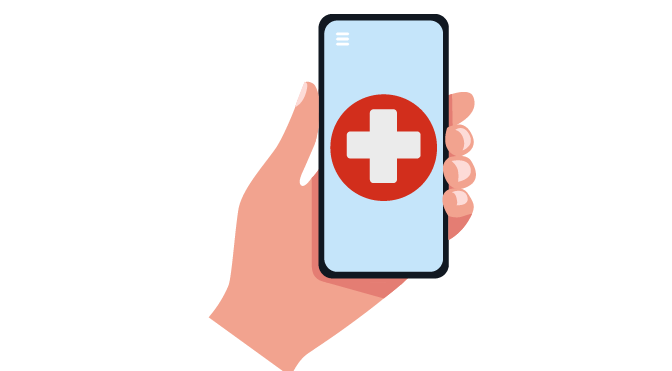In An Emergency

If you have had sex without a condom or if your usual contraception has let you down, there are different types of emergency contraception that you can use. Read more on the FPA website’s Emergency Contraception Guide.
Emergency contraception can be very effective, but it is not as effective as using other methods of contraception regularly.
You can get EHC free from:
Contact your GP or phone the clinic on 01744 646 473 to arrange a coil fitting.
Having an IUD (also known as a coil) fitted can also prevent pregnancy if it is fitted within five day of having unprotected sex. It works by stopping a fertilised egg from implanting into the uterus. You can then continue to use the IUD as long-term contraception.
If you’ve been sexually assaulted, remember it’s not your fault. Please don’t be afraid to get help.
If your life is in danger, or in an emergency, always call 999. You can also get help at your local A&E.
There are services that can help if you've been sexually assaulted, raped or abused. You don't have to report the assault to the police if you don't want to. You may need time to think about what has happened to you. However, consider getting medical help as soon as possible for any injuries and because you may be at risk of pregnancy or sexually transmitted infections (STIs). If you want the crime to be investigated, the sooner a forensic medical examination takes place, the better.
Try not to wash or change your clothes immediately after a sexual assault. This may destroy forensic evidence that could be important if you decide to report the assault to the police.
Call the sexual health clinic
You might be at risk of STIs or pregnancy, so contact us to arrange an appointment as soon as possible. You don’t even need to tell us – but if you do, we’ll listen.
Sexual assault referral centres (SARC)
Sexual assault referral centres or SARC for short, have specially trained medical professionals and support workers, who offer medical, emotional, and practical support.
Where is my nearest SARC
Sexual assault referral centres (SARCs) offer medical, practical and emotional support to anyone who has been raped sexually assaulted or abused. They have specially trained doctors, nurses and support workers to care for you. Help is available 24 hours a day.
The nearest sexual assault referral centre (SARC) to St Helens is https://www.rapecentre.org.uk/
PEP stands for post-exposure prophylaxis (sometimes called PEPSE). It is a medication that a person takes to help reduce the risk of the HIV virus taking hold of a person. It's meant as an emergency measure to be used as a last resort, such as if a condom fails during sex. Taking PEP will not protect you from other sexually transmitted infections or unplanned pregnancies.
What does Post-Exposure Prophylaxis mean?
Let's break it down; the 'post' is something you do after the risk of exposure, in this case to HIV, 'prophylaxis' is a treatment or action you can take to help prevent disease.
So, you take PEP after the risk of exposure to HIV. It must be taken within 72 hours.
Where can I get PEP if I think I need it?
PEP is available on the NHS for free.
The best place to get PEP is a sexual health or HIV clinic. If you need PEP over the weekend, or when sexual health clinics are closed, the best place to go is an Accident and Emergency department. PEP is not normally available from GPs, and you cannot buy it in a pharmacy.
What do I need to tell you when I call about PEP?
Tell the receptionist who books you in that you think you need HIV PEP and they will help get you seen as soon as possible by a member of staff who can make an assessment of what has happened to you.
As PEP is a powerful course of drugs you will be asked by a member of staff about what has happened to assess if you need PEP:
If the person you had sex with is living with HIV and has had an undetectable viral load, you will not need PEP as it won’t be possible for the virus to have been transmitted.
Once a decision is made that it’s appropriate for you to have PEP, you will be asked to take an HIV test. This is to make sure you don’t already have HIV. If HIV is detected by a test, other forms of treatment will be recommended to you but you will not need to take PEP.
How do I take PEP?
Your doctor or nurse will explain how to take PEP.